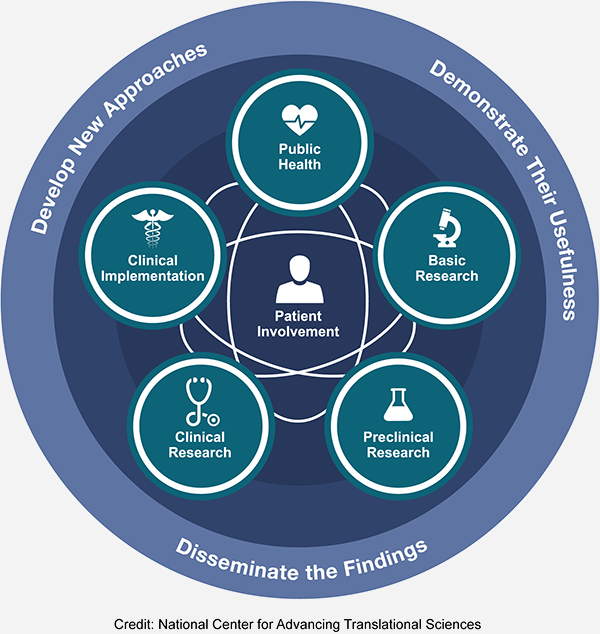What is Translational Science?
Translation is the process of turning observations in the laboratory, clinic and community into interventions that improve the health of individuals and the public — from diagnostics and therapeutics to medical procedures and behavioral changes.
Translational science is the field that generates scientific and operational innovations that overcome longstanding challenges along the translational research pipeline. These include scientific, operational, financial and administrative innovations that transform the way that research is done, making it faster, more efficient, and more impactful.
Translational Science Spectrum
The translational science spectrum covers all stages of research from basic research to public health.
